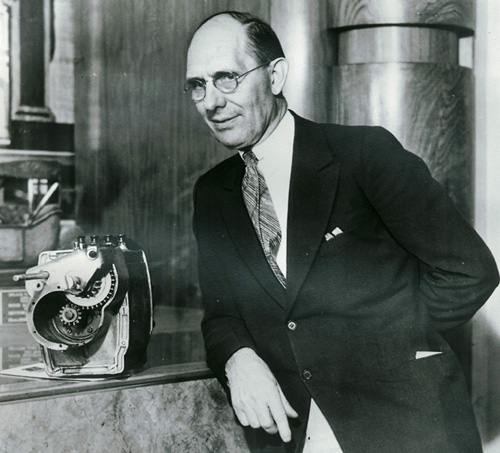If you have always done it that way, it is probably wrong. (ang.)
Charles Kettering słynne cytaty
„Interesuję się przyszłością, bo w niej spędzę resztę życia.”
My interest is in the future because I am going to spend the rest of my life there. (ang.)
Charles Kettering: Cytaty po angielsku
"Mr. Kettering's Talk", News and Views, General Motors Acceptance Corporation, General Exchange Insurance Corporation, Motors Insurance Corporation, 1936, p. 46 https://books.google.com/books?id=G2hEAAAAIAAJ&dq=%22the+rest+of+my+life+there%22
Variants:
I object to people running down the future. I am going to live all the rest of my life there, and I would like it to be a nice place, polished, bright, glistening, and glorious.
Quoted in Professional Amateur: The Biography of Charles Franklin Kettering, by T. A. Boyd 1957, pp. 3–4 ( Internet Archive https://archive.org/stream/professionalamat013190mbp/professionalamat013190mbp_djvu.txt, Google Books https://books.google.com/books?id=42Ohg0wKaWsC&pg=PA4&dq=%22I+object+to+people+running+down+the+future%22)
My interest is in the future because I am going to spend the rest of my life there.
Common, since 1947. Examples: Instruments and Control Systems, Volume 20, 1947, p. 374 https://books.google.com/books?id=gBonAAAAMAAJ&q=%22my+interest+is+in+the+future+because+i+am+going+to+spend+the+rest+of+my+life+there%22+kettering; " Biography: Charles Kettering http://www.pbs.org/wgbh/americanexperience/features/biography/streamliners-kettering/", American Experience, PBS; The New Digital Age: Transforming Nations, Businesses, and Our Lives, by Eric Schmidt, , 2014, p. 337 https://books.google.com/books?id=SSWODQAAQBAJ&pg=PA337&q=kettering#v=onepage
Kontekst: You know, you read about the future. You can't help that. I don't look upon the future. I am not a politician. I am not worried about the future at all. I don't like to run it down. I don't like to think of it being too dark because I expect to spend all the rest of my life there and I don't want to have a nasty end to it.
“The whole fun of living is trying to make something better.”
As quoted in Dynamic Work Simplification (1971) by W. Clements Zinck, p. 12
As quoted in Dynamic Work Simplification (1971) by W. Clements Zinck, p. 122
quoted in Professional Amateur: The Biography Of Charles Franklin Kettering, Thomas Alvin Boyd, 1957 page 106 ( Internet Archive https://archive.org/details/professionalamat013190mbp)
As quoted in Boss Ket (1961) by Rosamond McPherson Young p. 194
As quoted in Scientific American (August 1934) p. 243
“The key to economic prosperity is the organized creation of dissatisfaction.”
As quoted in The End of Work (1995) by Jeremy Rifkin, p. 19
as quoted in Boss Ket (1961) by Rosamond McPherson Young p. 194
“Logic is a way of going wrong systematically.”
As quoted in [Heinich, Robert, Robert Heinich, 1970, Technology and the Management of Instruction - Monograph 4, https://books.google.com/books?id=l_wnDwAAQBAJ, Information Age Publishing, 2000, Greenwich, Connecticut, 34, 9781607529736, 6 May 2020, [...] Kettering's comment, 'Logic is a way of going wrong systematically' [...].]
